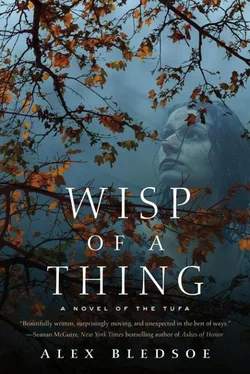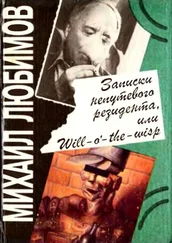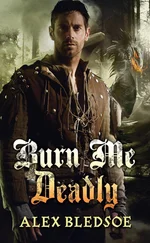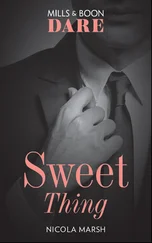Keene, daughter of Lloyd and Francis Keene of Pine Road, was found by her mother. A note found at the scene indicated the girl was despondent over a failed romance.
Services will be held Wednesday at the First Methodist Church of Unicorn.
“That’s it?” Rob asked. “That doesn’t really tell me much.”
“That’s because there wasn’t much to tell. But your question kind of jogged my memory. Look at this one.”
He opened another book, to a page dated 2010. This headline read, LARK VALLEY TEEN FOUND DEAD IN APPARENT SUICIDE.
County Sheriff Clip Rooker reported that Leigh Anne George, 16, of Lark Valley, hanged herself Monday in the family garage.
George, daughter of Fred and Helen George of Lark Valley Community, was found by her father. A note found at the scene indicated the girl was despondent over a failed romance.
Services will be held Friday at the First Methodist Church of Unicorn.
“Other than going to the same church, what’s the connection?” Rob asked.
“They were both dating the same boy.”
“How do you know?”
“Because who’s dating who is all the women around here talk about, and I’ve got a wife. See this?” He held up an old photograph, covered with blue cropping lines indicating it had once run in the newspaper. A middle-aged couple, dressed for a funeral, descended the steps of a church. Next to them stood a tall, distinguished man in a white suit with a bolo tie. “That fancy fellow in the white suit is State Representative Sandy Stang, which is why this funeral was news. He was campaigning, and made sure we knew he’d be visiting the bereaved of his district so we could get a picture. But look in back of him.”
Behind the grieving parents stood Stoney Hicks, looking uncomfortable in a suit and tie. Next to him, as faintly amused as ever, was his uncle Rockhouse. Except that Rockhouse sported an enormous walrus mustache instead of a full beard, both looked exactly the same as they did now.
“There’s your Romeo,” Howell said.
Rob got a chill. “So both these girls dated Stoney Hicks?”
“Yep.”
“Was he ever implicated in their deaths?”
“Oh, hell no. They were suicides, no doubt. After the fourth or fifth one, though, people started to whisper.”
“ Five different girls killed themselves over this guy?”
“Yep.”
“Did anybody ever date him and live ?”
Sam chuckled. “That wouldn’t make the news.”
“People had to have noticed the pattern. Especially in a little town like Needsville.”
Howell looked him over as if just noticing him. “You do look like you’ve got some Tufa in you. That why you’re in the area? You got family there?”
“No Tufa in me at all, I promise you. I’m part Filipino, and the rest is all Kansas.”
He narrowed his eyes, as if he didn’t quite believe it, then shrugged it off. “Needsville’s a funny place. You notice there aren’t any churches there?”
“Yeah, actually, I did. Do you know why?”
“What I heard was… Ah, never mind. I was always told it’s best not to talk too much about the Tufa. They’ve got a way, especially the true bloods, of finding out if you’ve spoken out of turn. Then bad things can start to happen to you.”
“Like fairies?”
Howell’s frown deepened. “Why would you say that?”
“It’s what they say about fairies over in England. They call them ‘the Good People’ so they won’t get mad.”
“You sure know a lot. You positive you’re not part Tufa?”
“Swear on a Bible if you got one.”
He chewed his lip. “Son, let me speak to you like a father here. I’m an outsider, too, even though I’ve lived here over thirty years. I’ve seen a lot of weird things happen around Needsville. You take any one of ’em, there’s always a rational reason for it. Add them all up, though, and it makes a different picture.” Then he pointed to the newspaper. “And speaking of pictures, look here. Recognize the guy next to your young Bluebeard? That is the legendary Rockhouse Hicks.”
“‘Legendary’?”
“You bet. I’ve got all three of his albums. Actual vinyl albums. Far as I know, it’s the only way you can get ’em.”
Rob smiled skeptically. “I’m a musician, Mr. Howell, and I’ve done a ton of research on the music of this area. I never heard of him before I met him.”
“To be fair, he wasn’t ever really famous. But he almost was, and he probably should be.” He went to the shelf filled with the other bound volumes and pulled out another of the big books, much older than the rest. He opened it unerringly to the spot he wanted, as he’d no doubt done many times. “I wasn’t living here then, but the paper covered it.”
The headline proclaimed, CLOUD COUNTY NATIVE’S STAR RISES, FALLS.
Though his family did not have a radio, young Rockhouse Hicks would go into Needsville on Saturday night and ask someone sitting in their car if they could turn on their radio so he could hear Bill Monroe and Roy Acuff on the Grand Ole Opry. At age 5, he made his first banjo out of a Christmas peppermint can, and dreamed that someday he would join these legends on the Opry stage. But thanks to a cruel twist of fate, it never happened, and he hasn’t released a recording in over twenty years.
Hicks is no stranger to hardship. He lost his father, Grannett Hicks, to pneumonia when he was only 4 years old. He was 20 when he got fired from a quarry in Morristown for singing on the job. He then boarded a bus for Nashville and talked his way backstage to meet his idol, Bill Monroe. Impressed by the young man’s courage, Monroe auditioned Hicks on the spot. A week later, Hicks was in Fort Smith, Arkansas, singing on stage with the father of bluegrass.
“You do know who Bill Monroe was, don’t you?” Howell asked.
“Might’ve heard the name,” Rob said dryly. He skimmed the details of Hicks’s brief career, looking for the point things went wrong.
After three albums, and three years with Monroe, Rockhouse finally had a solo hit with “Love Flew Away” and began his only tour as a headliner. But at his third show, he was caught backstage in a compromising position with an underage black girl. The racial attitudes of the times resulted in him being blacklisted, and the girl’s age led to the end of his friendship with Monroe. Although he attempted a comeback on the coattails of the ’60s folk revival, his difficult personality ended whatever chances he had of joining the likes of the Carter Family, Pete Seeger, and Woody Guthrie as icons for the new generation.
“That sounds like the guy I met, all right,” Rob admitted.
Howell said, “I’ve found out some more stuff since then, though. Turns out that story isn’t exactly accurate.”
“What do you mean?”
“He wasn’t caught with a black girl. I mean, that would’ve been bad at the time, but the truth was actually kind of worse. Probably the only thing that could’ve been worse. I’ve got it on good authority, from more than one local source, that he was actually caught with his pants down… with his own daughter.”
Rob stared at him. His first thought, naturally enough, was Curnen, but that was absurd. This happened fifty years ago, after all. No telling how many kids the old shithead had scattered through the area. “Wow. Did he go to jail?”
“No, nobody pressed any charges—you just didn’t do that to family back then. But it pretty much finished him up as a working musician. He got blacklisted everywhere. And the girl’s boyfriend threatened to kill him, right before he disappeared. That is, the boyfriend disappeared, not Rockhouse. He never came back from Nashville, and no one’s found a trace of him to this day. Everyone figured Rockhouse and the Tufas had something to do with it, but nobody ever got arrested. No body, no crime.” He shook his head. “The Tufa are still like that. They take care of their own problems.”
Читать дальше











